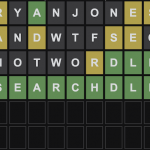Ever since Google teased the idea of publishing an SEO Glossary to define common SEO terms, several SEOs have taken to Twitter to voice their outrage of the idea. It seems SEOs can’t agree on just who should be the one to define not only SEO but many key SEO terms. Never fear, as the industry’s leading authority @WTFSEO is coming to the rescue.
We’ve analyzed over 100,000 SEO tweets about best practices, forum answers to SEO questions, SEO blog posts, and audits from several major SEO firms. We then fed all the data to our machine learning program and asked it to come up with the most definitive, unbiased SEO glossary ever.
Below you’ll find our official glossary of SEO terms.
- AI
- A powerpoint presentation full of buzzwords describing a product that the presenter hasn’t built yet
- Big Data
- in SEO, this means a spreadsheet with more than 1,000 rows
- Bing
- Search engine your mom uses. Literally just her and nobody else
- Black Hat SEO
- An unethical form of SEO practiced by anybody who outranks your site
- Causation
- See: Correlation
- Core Update
- When Google changes everything over a 2 week period, yet analysis and recovery articles appear within 3 minutes of the announcement
- Core Web Vitals
- Simultaneously the most impactful and least impactful ranking factor. No need to understand what they are, just run the report and copy what it says into your SEO audit
- Correlation
- See: Causation
- Crawling
- How quickly a site with a really poor PageSpeed score loads
- Cumulative Layout Shift
- A method sites use to have you click on the wrong article so they get more pageviews
- DA
- Domain Authority. Despite being created by Moz and having nothing to do with Google, many SEOs believe it’s the most important ranking factor.
- De-Indexed
- What happens when that helpful dev, who says they know SEO, decides to “clean up the code” on your site
- Directories
- The optimal URL format – much better than subdomains
- EAT
- Expertise, Authority, and Trust.Example: Most SEOs believe that they are the only ones with enough EAT to define EAT.
- Featured Snippets
- The reason your CTO keeps telling you to add FAQ pages because his buddy’s nephew told him that’s how to get one
- Search engine that started out as a softcore website offering backrubs
- Image Carousels
- Nowhere near as fun as they sound
- Incognito Mode
- Required before using a search engine for those… spicier searches
- It Depends
- The standard answer to most SEO questions
- KPI
- The things you make up, based on your actual results, when submitting for a search award
- Local Pack
- When you’re ranking #1 organically, this is the mechanism by which your 3-5 biggest competitors can make that completely irrelevant
- LSI Keywords
- These are not a thing for Google, but are a huge thing for SEOs. Nobody really knows what it means or what they are, but you need to use them in your keyword strategy
- Negative SEO
- The most likely reason behind any rankings drop
- Organic Traffic
- Ranking without the use of chemical fertilizers, just plain old, biodegradable, natural links
- Pagerank
- A method for evaluating how much a link should cost
- PBN
- Private Blog Network. A good SEO strategy when you do it, spam when somebody else does
- Query Deserves Freshness (QDF)
- The reason you have an intern update all your title tags every 6-1/2 weeks
- Ranking
- If you’re not first; you’re worst
- SEM
- For those that have to pay for it
- SEO
- SEO stands for SnakE Oil. SEO has been declared dead more than Kenny from South Park.
- Subdomains
- The optimal URL format – much better than Directories
- TF-IDF
- A concept used to determine which SEOs understand programming and which ones don’t
- URL
- The unique address of an individual page (Note: not necessarily the unique address of a unique individual page)
- Webmaster Guidelines
- See: Rosetta Stone


